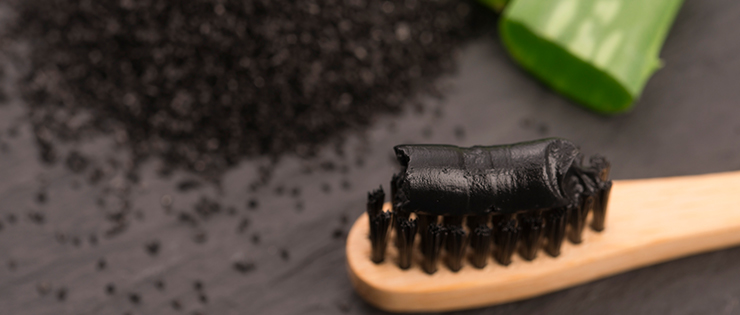
Clean, white, bright. All of us want white teeth, because it's associated with health and beauty. There's a few different ways to go about whitening your teeth safely, depending on the type of discolouration your individual teeth have. Charcoal toothpaste has become extremely popular due to heavy social media advertising, being promoted as a beauty product rather than a healthcare product. But would you trust a Kardashian's advice on blood pressure medication? Charcoal toothpaste can be used safely, and can be used effectively on some types of staining, but it's not a miracle product and certainly comes with its own risks.
Types of tooth staining
There's two main types of tooth staining. Intrinsic and extrinsic. Intrinsic staining is just the colour of your enamel. Some people naturally have whiter enamel than others. Some people have defects that occurred when then enamel was still forming as a baby, which means they have white, brown, or grey parts to their enamel. No amount of scrubbing or even professional cleaning will remove this staining, it's part of your teeth. This is where whitening products like peroxide gels are helpful, to change the colour of the enamel.
Extrinsic staining builds up on the surface of the enamel from outside sources, like tea, coffee, red wine, cigarettes. This is what charcoal toothpaste can be helpful in removing and preventing. If your enamel is discoloured with intrinsic staining, charcoal toothpaste is unlikely to make much difference to the colour.
How does charcoal toothpaste work
So how does it work? There's a lack of proper scientific evidence testing these products. It's theorised that because activated charcoal is excellent at absorbing things, it will "absorb" extrinsic staining. The main proposed mechanism of action though is abrasion. Charcoal toothpastes are scratchy, and will physically remove extrinsic staining life Jif in your sink. If used excessively, this carries a risk of wearing away healthy tooth structure. This is not a product that should be used every day, and likely not even every week. There's no current guidelines due to a lack of studies, I would suggest using not more than once a month, if at all.
Another thing to consider is that not all products are just toothpaste with charcoal added. If the one you're using is just a charcoal paste, it's missing all the good things in regular toothpaste like fluoride and antibacterials.
Things to remember about using charcoal toothpaste
Keep in mind there's a possibility for doing more harm than good. If you're having dental work on your front teeth, it's possible for the tiny charcoal particles to lodge in the junction where fillings and crowns meet your natural tooth. This can be very unsightly and difficult to clean out. Excessive use creating wear on the teeth can make the enamel thin, which actually creates a yellower appearance. Enamel is only about 1mm thick, and the tooth layer underneath, dentine, is naturally very yellow in everybody. If you thin your enamel, it's easier for the yellow dentine to show through.
Charcoal was used as a method for cleaning teeth back before modern toothpaste was invented. We've moved on and have far better methods of whitening teeth if that's what you're after. Have a chat to your dental professional to find out what type of staining your teeth have, so you can be safe and get the most out of any whitening treatment you and your dentist decide on.